The timeline and details involved in selling a business can vary widely depending on the company’s size, location, and industry; but, the overall steps to selling a business are fairly consistent across the board. We recommend using a professional advisor to help you get top dollar. Below, we outline the 7 steps to selling a business which are typical whether you use a business broker or not.
Step #1: Valuation
A business valuation is the most important piece of financial information you can possess regarding your business. Whether or not you plan to obtain professional guidance through the remaining steps to selling a business, the Valuation step most certainly requires a professional. With all of the factors involved, it is nearly impossible to accurately determine the value of your own business. During this step it is also a good time for a pre-screening with a lender to ensure your company meets current lending guidelines.
Step #2: Marketing
If you had not previously considered marketing your business as one of the steps to selling a business, you will need to reconsider this. Unless you already have a buyer lined up, plan to market your business to potential buyers. It is fair to say that if confidentiality is a priority to you, then marketing your own business will present a serious challenge, and the services of a professional broker or intermediary may be in order.
Step #3: Buyer/Seller Meeting
Once you have identified a serious prospective buyer, the next steps to selling a business include meeting with the prospective buyer, you (the seller), and your broker or intermediary (if applicable). This meeting is a chance for you to get to know the prospective buyer, to explain your business, and for the buyer to ask any questions they may have. Typically, the discussion at this meeting is kept “high level” and related to strategy, company history, nature of the business, etc. (Fact-checking and reviewing smaller details are typically handled post-offer, during the due diligence step.) Sometimes a prospective buyer may wish to visit your office and/or see any facilities or equipment. Many buyers also wish to perform a more detailed review of the business’s financials after the meeting. Here again, be mindful of your need for confidentiality, as no offer has been made at this step.
Step #4: Offer for Purchase
A formal offer to buy your business is typically presented as an “Offer for Purchase” or “Letter of Intent” (LOI). This document outlines the details of the offer, including the offered purchase price, the payment terms, the training and transition period, any required employment or non-compete terms for you (the Seller) and potentially key employees, and any other conditions related to the offer.
Step #5: Negotiation
After reviewing the details, you may accept the offer, reject it, or negotiate any aspects of the offer. Only after an offer is agreed upon can you proceed to the final steps to selling a business.
Step #6: Due Diligence
The time between an accepted offer from the buyer and the official closing is when the buyer performs their due diligence. This typically involves detailed financial statements, tax reporting documentation, historical financial data, copies of contracts with suppliers or customers, copies of leases, etc. The length of the due diligence period and the level of detail involved can vary greatly and is generally dictated by the buyer. (In our experience, typically you can expect a 21 up to 45 day timeline.) The objective during the due diligence period is to confirm that the business was accurately represented to the buyer prior to issuing their offer letter. Most buyers are not looking for minor discrepancies, but rather only for material differences or surprises that were previously unknown to them.
Step #7: Closing
When due diligence and buyer financing arrangements are complete, it is time to draft the closing documents and complete the sale. You will certainly want legal counsel (attorneys) and financial counsel (accountants) to help you with the various legal documents and to ensure you minimize the tax impact of the sale. You will want to collect your funds and ensure you have all of the documentation you need when you leave the closing table. In our experience, the total time from offer acceptance to closing (when funds are received) generally ranges from 60-75 days, but this can of course vary.
If you want to sell your business for top dollar, all of the steps to selling a business are important enough to warrant professional guidance. Through decades of experience, Viking has developed a streamlined process and system to equip an owner to sell his or her business for top dollar — and at a closing rate that is four times the industry average. If you are thinking of selling your business, we can provide an estimation of what your business would likely sell for and how long it might take to complete the transaction. Contact us today for a no-cost consultation.

